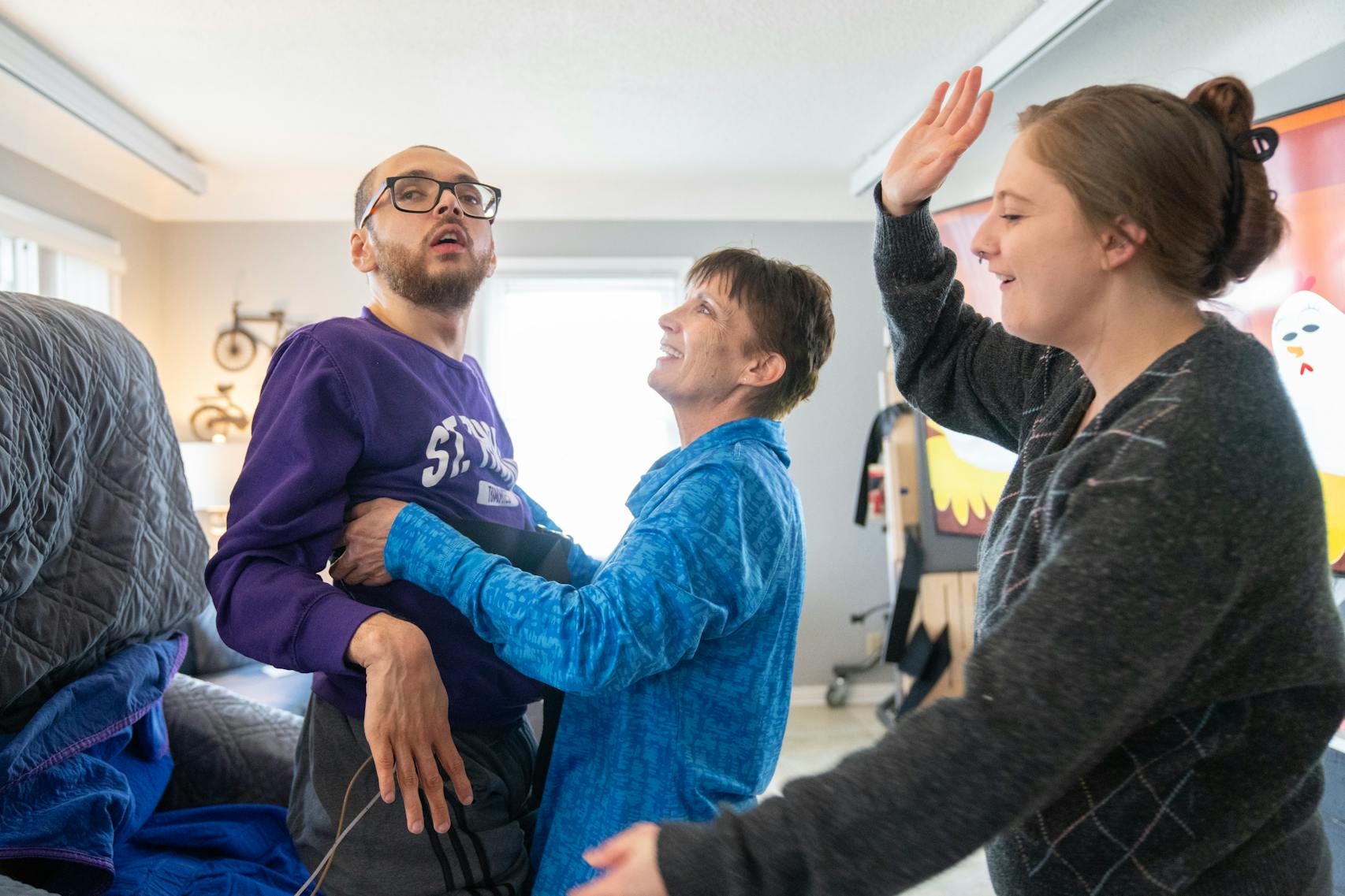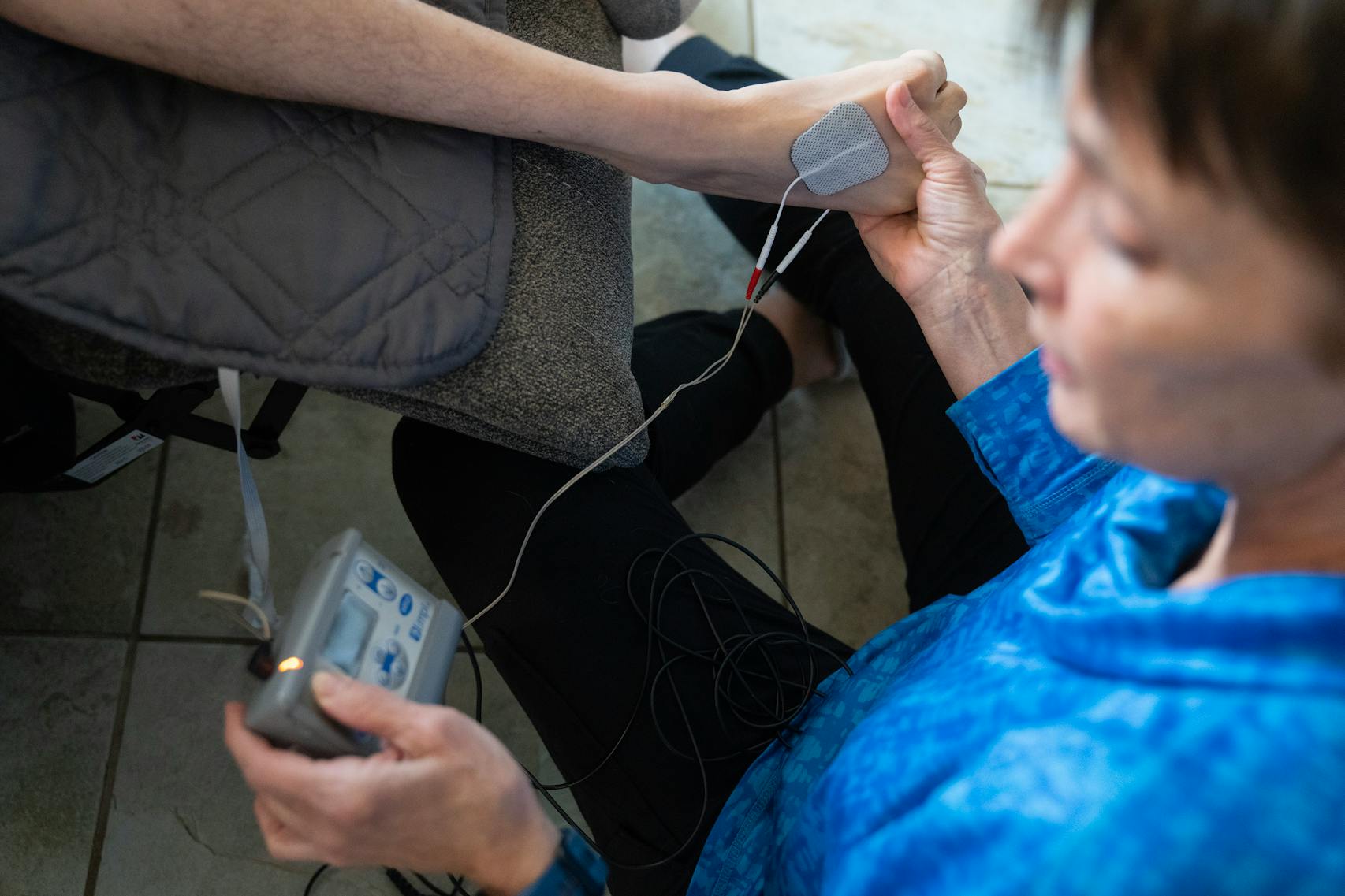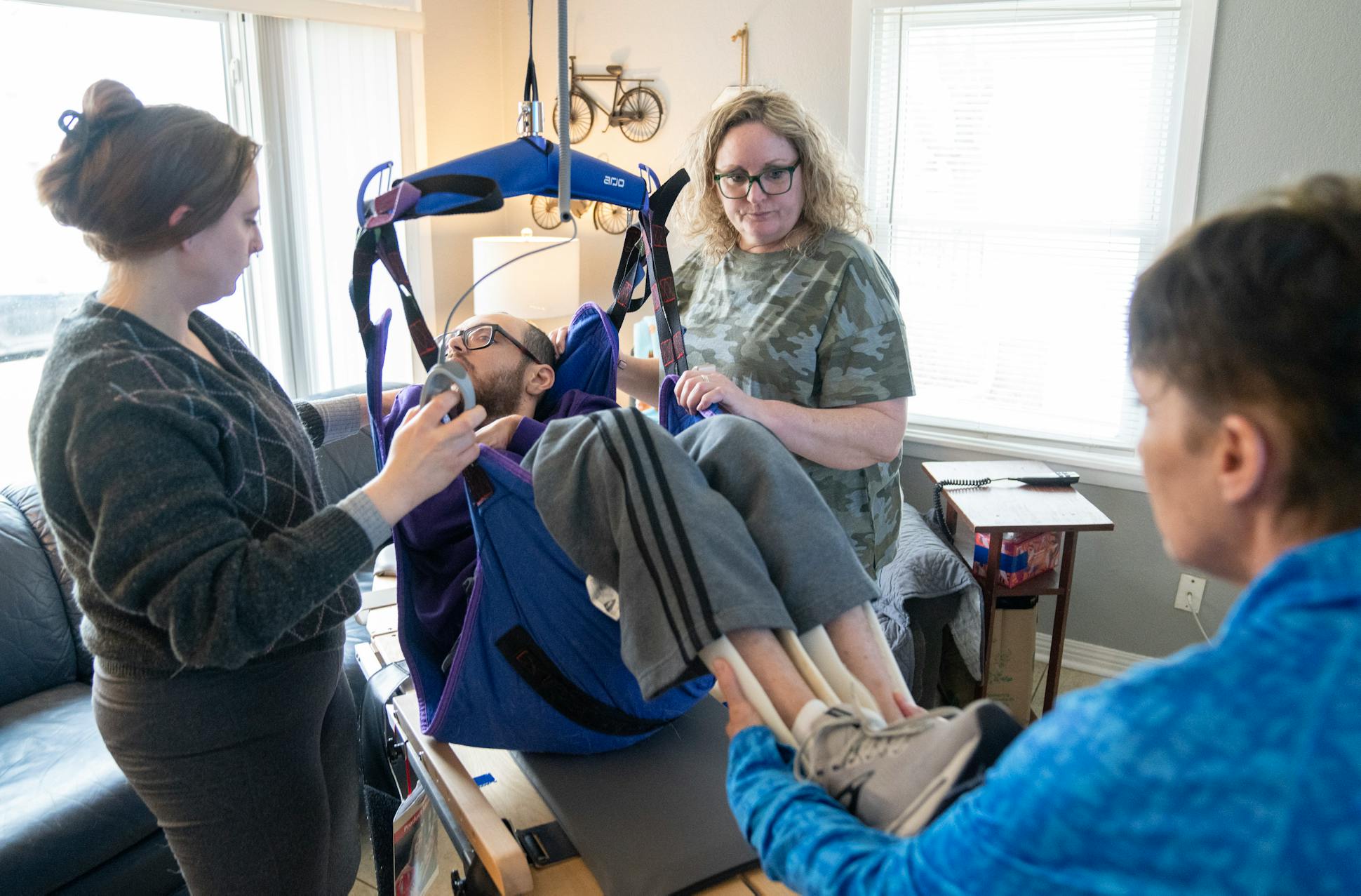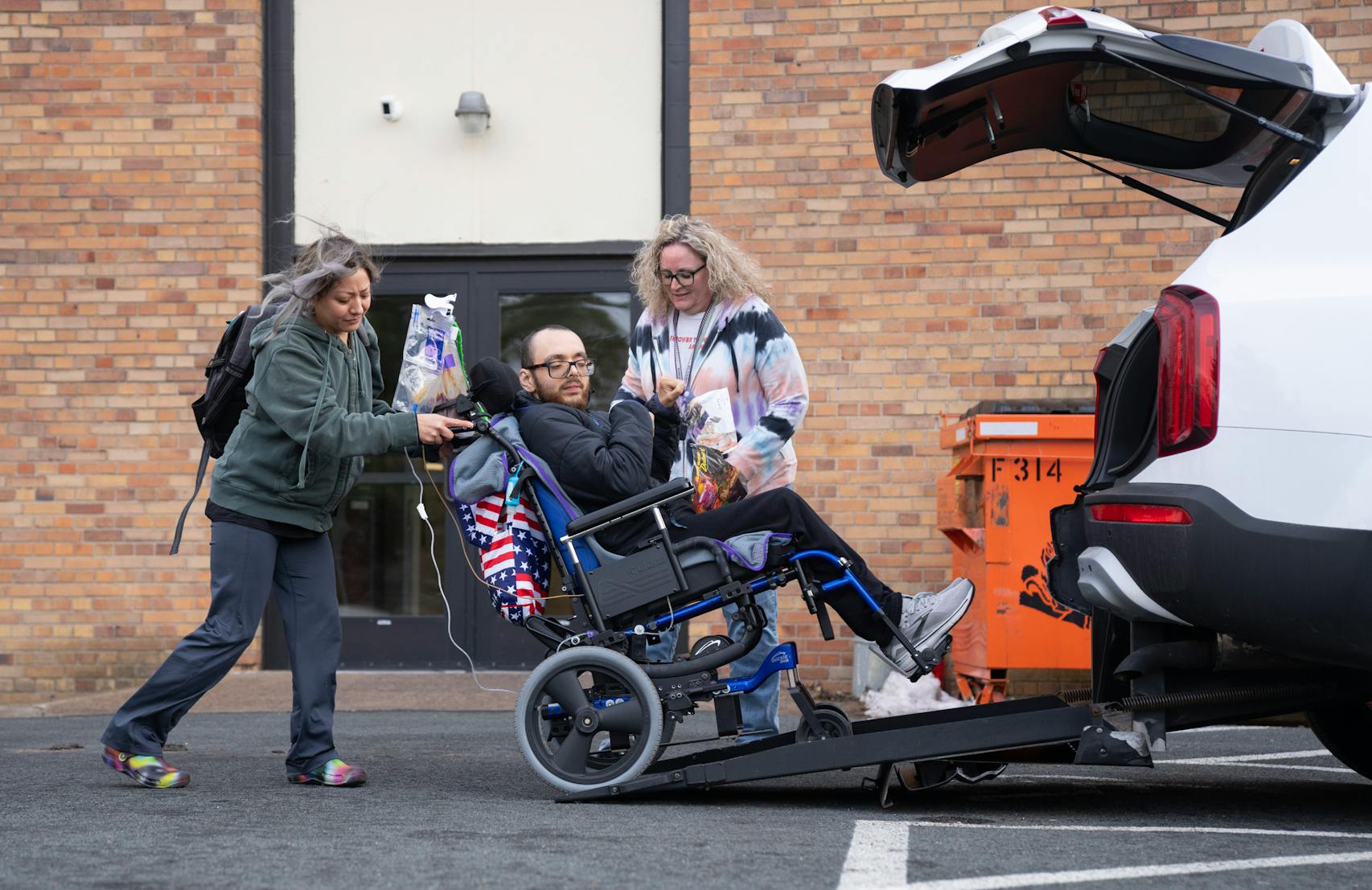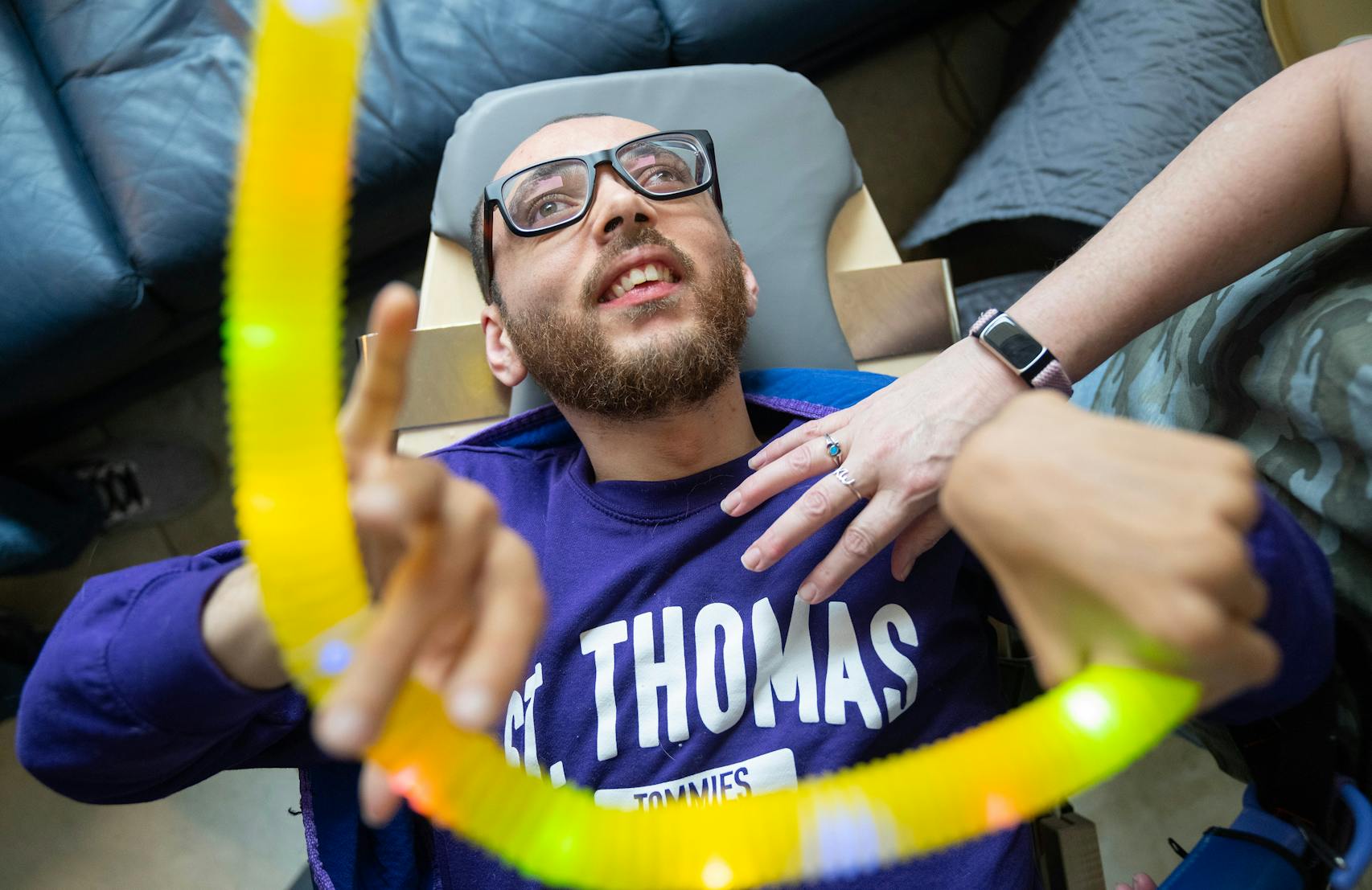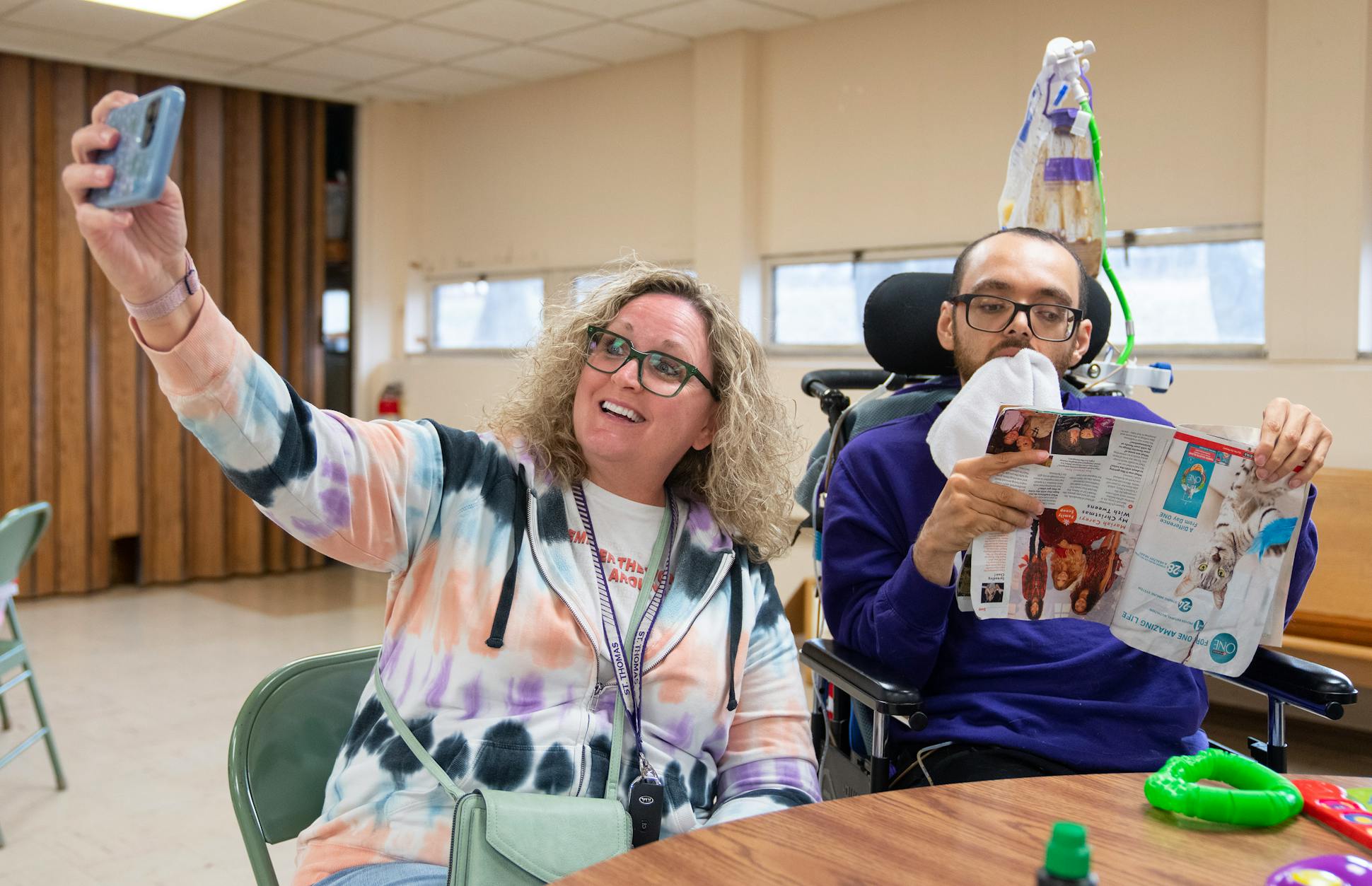Kathy Ware was on Instagram recently when she saw a story about Canada's medical assistance in dying law. It shook her.
"Alberta judge greenlights euthanasia for 27-year-old autistic woman DESPITE objections from her dad, who says she's healthy — just 'vulnerable' due to mental health problems," read the headline from the Daily Mail, a British tabloid.
Ware thought of her adult son, Kylen, whose disabilities render him nonverbal, barely mobile and dependent on round-the-clock care.
If Minnesota passes medical aid in dying legislation, she wondered, what might that mean for Kylen?
"What if I'm dead and gone and he has a public guardian?" Ware said. "And they decide the compassionate thing to do is just to let him die?"
For the 55-year-old South St. Paul woman, that headline confirmed her worst fears about Minnesota's proposed medical aid in dying legislation, which opponents call assisted suicide.
Many Minnesotans with terminal diseases have pleaded with legislators to pass the legislation quickly, calling it a simple matter of personal autonomy. The controversial law is unlikely to pass this session, legislators say. But similar bills have been proposed each legislative session for the past decade, and DFL leaders indicate they'll keep trying.
Proponents have testified about wanting a peaceful, healing death experience, surrounded by loved ones. For some, passage is urgent.
"As a terminally ill patient, I beg you to do something now," Nancy Uden, a 73-year-old Corcoran woman profiled in the Star Tribune last month, told a House committee. She told legislators of the slow, painful death that often comes with her devastating form of brain cancer: "I'm thankful we have hospice as an option. ... But if it's not enough in the end, I want the option to die gently and in my sleep."
Minnesota's proposed law limits medical aid in dying to terminally ill adults with a prognosis of less than six months to live. After determining patients mentally capable of making an informed health care decision, physicians would dispense life-ending medication, and patients would ingest it themselves. (In Canada, most of the medically assisted deaths are performed by a health care provider administering lethal injection.)
The diverse group of opponents includes religious conservatives, abortion opponents and disability-rights activists like Ware. They fear eligibility expanding: to people with anorexia, with severe mental health diagnoses, with profound disabilities.
"We can't just say it's a slippery slope when it's already occurring in Canada," Ware said. There, the law has evolved so much since its enactment in 2016 that patients suffering solely from mental illness soon will be permitted to use the law — and Ware said she fears it's only a matter of time before the law further expands. She contends that "the final straw is money, when it's looked at as financial savings to have someone kill themselves vs. having to live a quality life."
Canadian use increasing
The most recent Canadian government report shows nearly 45,000 reported medically assisted deaths between 2016 and 2022. In 2022, more than 4% of all Canadian deaths were medically assisted; most of those also received palliative care. The vast majority of requests were granted; fewer than 4% of applicants were deemed ineligible.
The law permits broader eligibility than the narrow Minnesota proposal. Canada's law says any "mentally competent" adult with a "grievous and irremediable medical condition" is eligible. And while the mental illness expansion was going to be implemented this year, it was recently postponed to 2027.
"The health system is not yet ready for MAID (medical assistance in dying) where the sole underlying condition is mental illness," Canada's minister of health, Mark Holland, said in a statement. "We are going to ensure that our MAID system is measured, thoughtful and compassionate, while we work with partners to ensure future readiness."
Similar legislation, first available stateside in Oregon in 1997, is now in 10 states and Washington, D.C. Supporters often claim no documented instances of people being coerced into choosing medical aid in dying.
But Ramona Coelho, a family physician in Ontario who treats vulnerable populations, fears that even though Canada's law states that requests "cannot be the result of outside pressure or influence," coercion can be subtle.
"People with disabilities are often treated like nonentities in hospital systems, whether because people are over-rushed or because of rampant nonconscious ableism," she said. "Once we start talking about death as a treatment option and use it in the medical model, it's a creative and easy thing to apply to many things."
The National Council on Disability has long opposed assisted suicide laws. A 2019 report said safeguards were ineffective: "The lives of persons with disabilities continue to be devalued in medical decision-making."
Nancy Utoft, president of the Minnesota Alliance for Ethical Healthcare, a coalition of health care workers, faith organizations and advocates for people with disabilities, calls Canada a cautionary tale.
"Is it really completely autonomous?" she said. "Because if you're at the end of life and struggling with whatever illness or disability, you're vulnerable. Think of the pressures that could be placed on you."
Oregon data indicates those who use medical aid in dying are often in vulnerable populations, according to a recent report by a British nonprofit that publishes research on medical aid in dying and opposes the practice. Only 1 in 5 who died by assisted suicide in Oregon in 2021 had private insurance; the vast majority were on government insurance. Nearly 60% cited concern about being a burden on loved ones as a reason, and 1 in 6 met criteria for treatable mental health conditions.
Sen. John Hoffman of Champlin, the Minnesota legislation's most prominent DFL opponent, worries about unintended consequences, especially when medical decisions often include financial considerations instead of solely being based on medical needs.
"How can we know the impact?" Hoffman said. "It's not about that individual person saying, 'Oh my God, this is about me personally.' No, it's not about you. It's about people that others don't seem to care about. You either value people with disabilities or you don't. There's some really entrenched ableism out there."
Since she gave birth to Kylen 29 years ago, Kathy Ware's life has not been easy. She knew something was wrong when he was unable to sit up at 6 months old. More problems came with the rare genetic mutation she'd eventually learn was myocyte enhancer factor 2C: Kylen had chronic seizures, severe developmental delays and decreased muscle tone. He is nonverbal. One rewritten gene rewrote his and Ware's life story.
But she poured her life into him. She nicknamed him "Bubby Wonder." She's put him in a vertical stander twice a day for decades to gain strength. A ceiling lift and harness help him move from recliner to bathroom to bedroom. She celebrated simple milestones like grasping a cookie and smearing it into his mouth. But 2023 was their hardest year: Kylen had knee surgery, then a broken tibia, had more frequent seizures and stopped swallowing. Ware was terrified she was losing him.
Yet Ware continues seeing joy where others see futility: Kylen's love for music therapy, his giggles during University of St. Thomas basketball games.
Among the primary reasons people cite for choosing medical aid in dying is that they don't want to be a burden on family or don't want to live an undignified life.
This hits Ware, a registered nurse, squarely in the gut. Is Kylen a burden? Does his incontinence make his life undignified? Is Kylen's medical care "futile care"?
"I think of it as difficult but not as a burden," she said. "Why is it a tragedy if a healthy, nondisabled person commits suicide? Everyone cries and agrees the mental health care system is a failure. But when someone else wants to commit suicide, that's now compassion and empathy. Because they chose to kill themselves before they became like Kylen."
